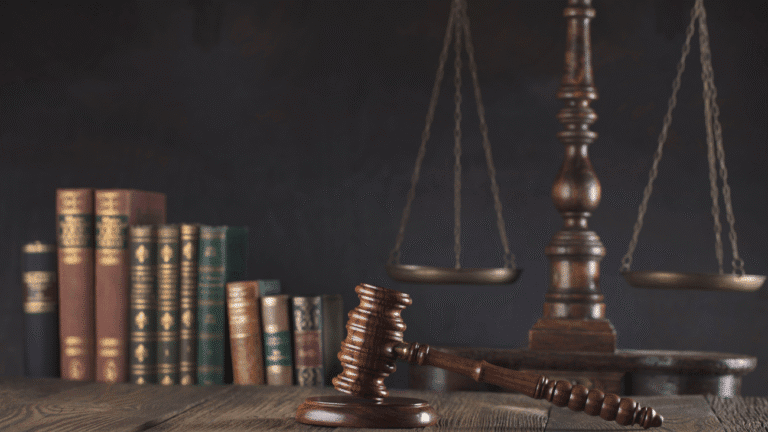Quevedo & Ponce - Noticias Legales
WIPO Treaty on Intellectual Property, Genetic Resources, and Associated Traditional Knowledge
- February 27th, 2025
- Quevedo & Ponce
The WIPO Treaty on Intellectual Property, Genetic Resources, and Associated Traditional Knowledge, adopted in Geneva on May 24, 2024, establishes an international legal framework for the recognition and protection of ancestral knowledge and its impact on intellectual property and contemporary science. This instrument aims to enhance the patent system’s quality, ensuring that inventions derived from genetic resources and traditional knowledge are managed with transparency and respect for their communities of origin.
In Ecuador, both genetic resources and traditional knowledge enjoy constitutional protection, in line with the concept of ancestral knowledge recognized in Article 57 of the Ecuadorian Constitution. This provision safeguards the rights of Indigenous peoples to preserve, develop, and utilize their traditional knowledge, ensuring its legal protection against misappropriation and affirming its significance within the national legal framework.
The Disclosure Requirement: Ensuring Transparency in the Patent System
One of the Treaty’s most significant innovations is the introduction of the disclosure requirement, which aims to prevent the misappropriation of genetic resources and traditional knowledge associated with patented inventions. This mechanism ensures transparency and the proper recognition of the rights of countries and communities of origin.
When Does the Disclosure Requirement Apply?
1. For patent applications based on genetic resources: The applicant must identify and disclose the country of origin of the genetic resources used in the invention.
If the country of origin is unknown, the applicant must provide general information on the resource’s origin.
2. For patent applications based on traditional knowledge associated with genetic resources: Since such knowledge is closely linked to Indigenous peoples and specific communities, it is mandatory to recognize and disclose the community of origin of such knowledge.
This requirement promotes equity in patent management, ensuring that innovations based on these elements respect the rights of Indigenous and local communities and are subject to proper acknowledgment and consultation.
Public Disclosure of Patent Applications
The Treaty mandates that each signatory country must ensure that the disclosures made in patent applications concerning genetic resources or associated traditional knowledge are available to the public. This can be achieved through national intellectual property offices or other mechanisms deemed appropriate by each State to effectively disseminate this information.
Treaty Membership Status
As of February 2025, 40 countries have ratified the Treaty. However, Ecuador has not yet formalized its accession. Nevertheless, Ecuadorian legislation already provides protective mechanisms for these resources, allowing similar principles to be applied in patent management within the country.
At Quevedo & Ponce, we have a team of experts specializing in patents, genetic resource protection, and ancestral knowledge. We offer comprehensive legal advice on invention production, registration, protection, and compliance, ensuring that every innovation aligns with national and international legal frameworks.
If your invention involves genetic resources or traditional knowledge, we provide guidance at every stage of the process to ensure proper protection and legal compliance.
Contact us to learn more about our services and safeguard your intellectual property rights.
Más Artículos
The National Court of Justice establishes a new binding jurisprudential precedent on employer retirement compensation
The National Court of Justice has issued a new binding jurisprudential precedent that redefines the calculation of employer retirement compensation in Ecuador. Resolution No. 16-2025 specifies which amounts may be deducted from the employee’s individual retirement fund, reinforcing the principle of favorability and legal security in labor matters.
IESS and Enforcement Actions: The Constitutional Court Shields Shareholders and Bans Administrative Travel Restrictions
Constitutional Court Ruling 3364-21-EP/25 protects shareholders from IESS enforcement measures, prohibiting administrative travel bans and personal liability without judicial intervention. The decision strengthens corporate legal certainty and upholds the binding precedent 22-13-IN/20
Geographical Indications: Value and Protection of Origin
Geographical indications (GIs) are a form of intellectual property protection that recognizes the link between a product and its place of origin. They ensure that the product’s characteristics, quality, or goodwill derive from its geographic environment, helping preserve authenticity, strengthen the local economy, and protect the cultural heritage of communities.
Corporate Transformation and Sports Joint Stock Companies: Effects of the Constitutional Court Decision that Invalidated the Organic Law of National Solidarity
The Constitutional Court of Ecuador declared the total unconstitutionality of the Organic Law of National Solidarity, determining that it was enacted in violation of the principle of unity of subject matter and the ordinary legislative procedure. This decision nullifies the obligations imposed upon Simplified Stock Companies (S.A.S.) and Sports Joint Stock Companies (S.A.D.), restoring the previous regulatory framework and reaffirming both the supremacy of constitutional review and the need of maintaining normative coherence within the Ecuadorian legal system.
Mediation: An effective and legal way to resolve conflicts in Ecuador
Mediation is a conflict resolution process whereby the parties, assisted by a neutral third party called a mediator, seek to reach a voluntary agreement on a negotiable matter, in an extrajudicial and definitive manner. This mechanism promotes fast, confidential, and fair solutions that have the same legal validity as a final judgment, fostering dialogue and a culture of peace in Ecuador.






